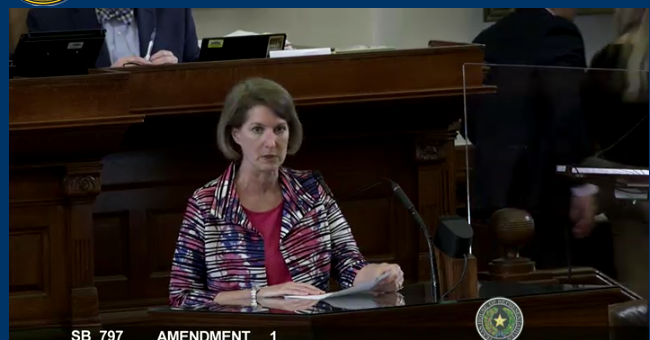Austin voters want to end runoffs. So, why is there one Tuesday for mayor, council seats?
- Oops!Something went wrong.Please try again later.
- Oops!Something went wrong.Please try again later.
- Oops!Something went wrong.Please try again later.
As the final batch of votes were counted in Austin's mayoral race Nov. 8, the outcome was, as expected, a bit of a letdown: No one won.
None of the six candidates earned a majority of the votes, so the two top vote-getters, Celia Israel and Kirk Watson, advanced to a winner-take-all runoff. Their race, along with three Austin City Council district races that also failed to deliver a winner last month, will be decided Tuesday, six weeks after Election Day.
The anticlimactic ending was what Austin voters had hoped to avoid when they approved a ballot measure in May 2021 to do away with runoff elections in favor of a quicker and less costly way to pick a winner. The alternative is ranked-choice voting, a system in which voters, instead of picking one candidate, rank all candidates. It's used to determine a winner if no candidate gets a majority of votes.
The system was sold as a way to elect officials from a large electorate and not through a runoff, which tends to draw low participation and appeals disproportionately to older and more traditional voters. Through early voting, which ended Friday, only 11% of Austin voters had cast a ballot in the runoff. That's in sharp contrast to November, when Travis County collected ballots from 37% of registered voters during early voting.
Austin runoff election:With fewer on-campus voting sites for Austin runoffs, will fewer students vote?
"It takes away the power of the fringe on both sides to elect all of our candidates," said Eugene Sepulveda, an adviser to politicians who worked with a political action committee to bring the ranked-choice voting question to voters last year.

Why is there a runoff election this year?
So, why, after Austin approved the change, is there a runoff election now? That's because, even though Austin allows ranked-choice voting, the state, whose election laws trump those of the city, does not. In refusing to implement the change, the city points to a 2001 opinion from then-Secretary of State Henry Cuellar, who said a city's elections procedures cannot be inconsistent with state law.
"They're expensive for candidates, they're expensive for the entity that puts them on, and so few people turn out in runoff elections," said state Rep. Vikki Goodwin, D-Austin, who in 2018 won a runoff in a Democratic primary in her House district.
To hold the runoff, the city said, it received an $866,000 cost estimate from Travis County. Austin also must pay two other counties, Williamson and Hays, in which the city has overlapping boundaries. Those counties have not yet produced a cost estimate.
Austin runoff election:Austin mayor, council runoffs may dictate future of city's housing policies
Since 2014, when Austin adopted a 10-1 council system of government, the city has had 34 general or special City Council elections. More than half went to a runoff.
There's another reason Goodwin wants to end runoffs: They tend to get ugly. In Austin, Israel and Watson, concerned only with each other at this stage of the election, have exchanged pointed attacks. Watson has accused Israel, in her time as a state representative, of blocking funding for domestic violence survivors. Israel has blasted Watson for receiving support from Republicans.
"What we're witnessing in Austin is how mean it's gotten," Goodwin said.
The campaigns for Israel and Watson declined to comment on ranked-choice voting.
Austin runoff election:As runoff looms, 4 takeaways from latest Austin mayoral debate between Israel, Watson
How does ranked-choice voting work?
A bill from Goodwin, filed the week after the November election, would legalize ranked-choice voting in Texas.

If approved, here's how it would work: Voters rank candidates in order of preference. If a candidate gets a majority of first-choice votes, the race is over; that candidate wins. But if no candidate gets a majority of votes, the candidate receiving the fewest first-choice votes is eliminated, and that candidate's ballots are examined for second-choice votes. These votes are then assigned to the remaining candidates. This is repeated until one candidate has a majority of votes and is elected.
Goodwin filed a similar bill last legislative session. It did not get a hearing.
"The Texas Legislature is not going to grant power back to cities and counties. It's just not going to do it," said Steven Pedigo, a professor at the University of Texas' Lyndon B. Johnson School of Public Affairs.
There's another reason it might not fly, Pedigo said. Republicans, the majority party in both chambers, might be skeptical after Alaska held a congressional election this year under the ranked-choice system and GOP candidate Sarah Palin lost to Democrat Mary Peltola.
Endorsements:Statesman Editorial Board endorsements for the Austin mayoral, City Council runoff elections
Last year, New York used ranked-choice voting for the first time when Eric Adams was elected mayor.
Texas' 88th legislative session will begin Jan. 10.
Pedigo suggested that Goodwin highlight the economics of ranked-choice voting and the savings that will come to taxpayers by ending the runoffs.
"It's the only argument she can make," he said.
This article originally appeared on Austin American-Statesman: Austin voters say no more to runoffs. Here's why there's one Tuesday.

